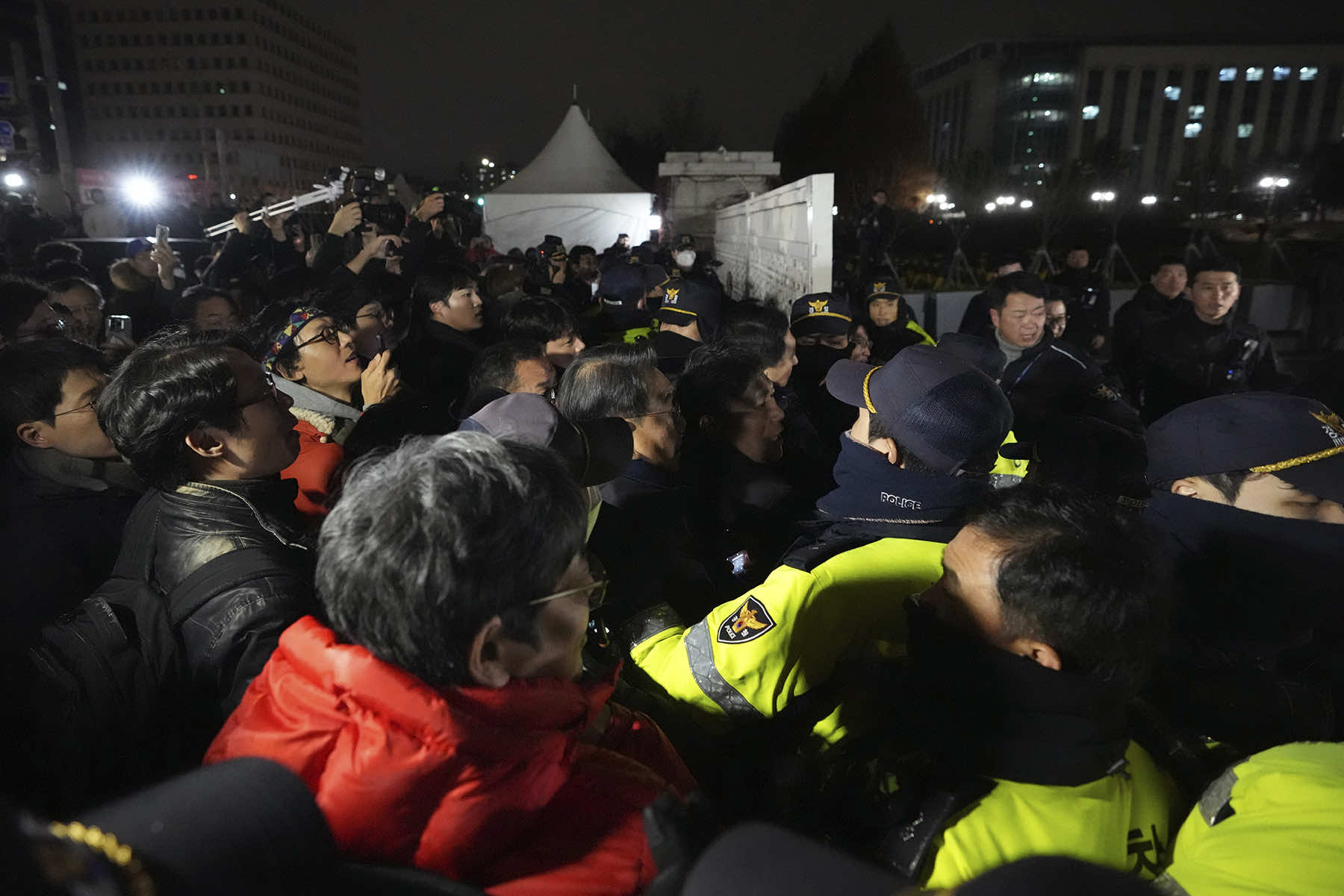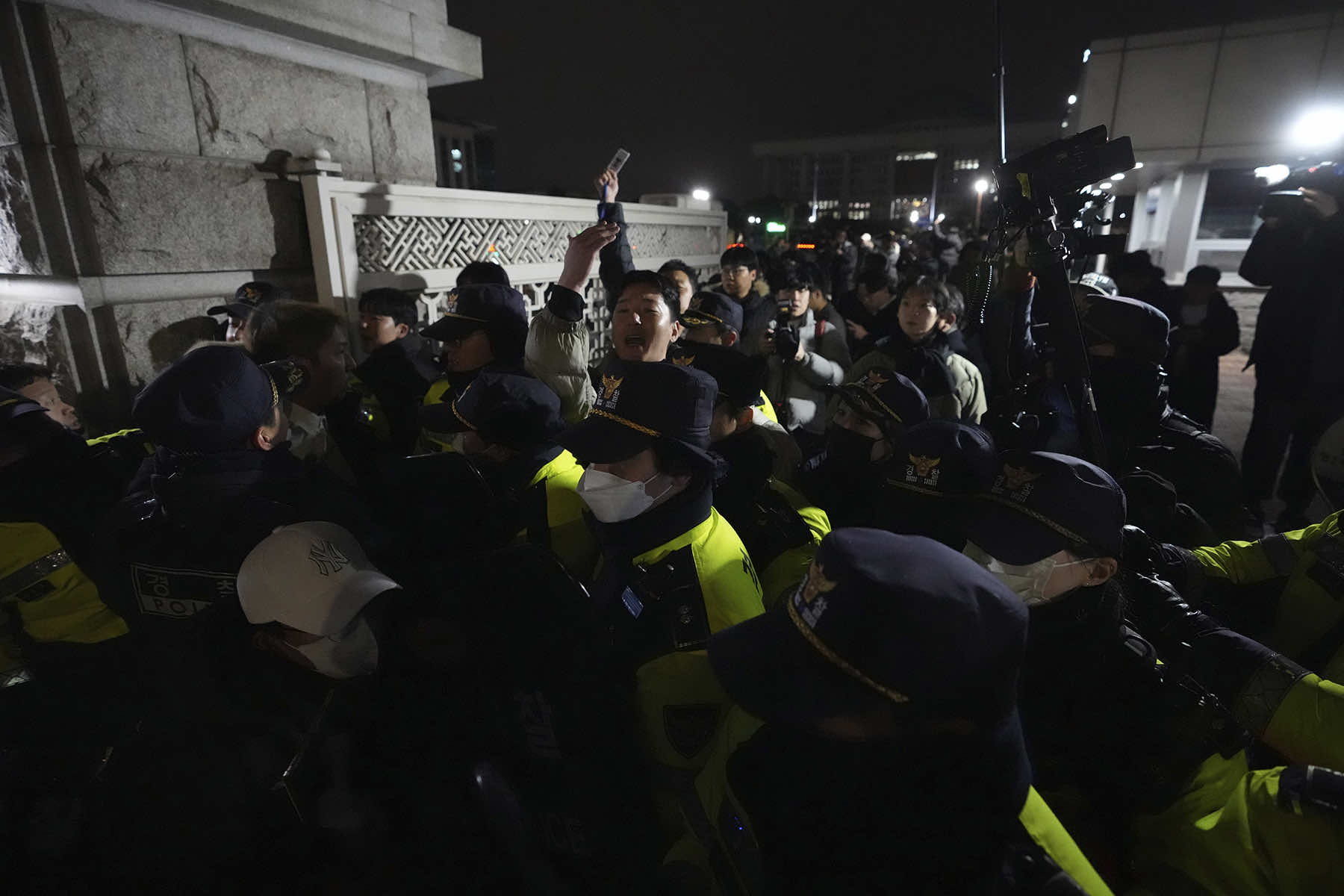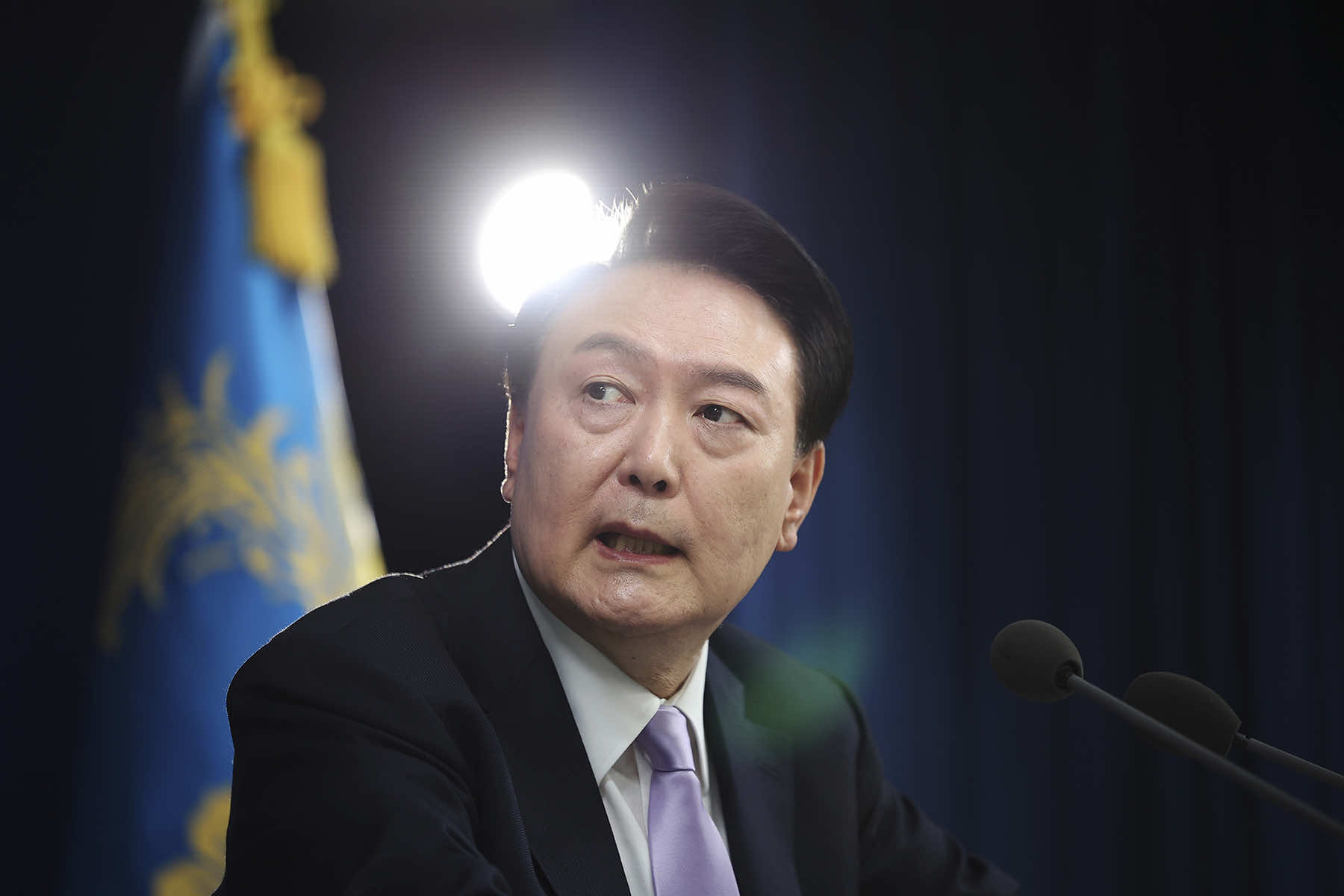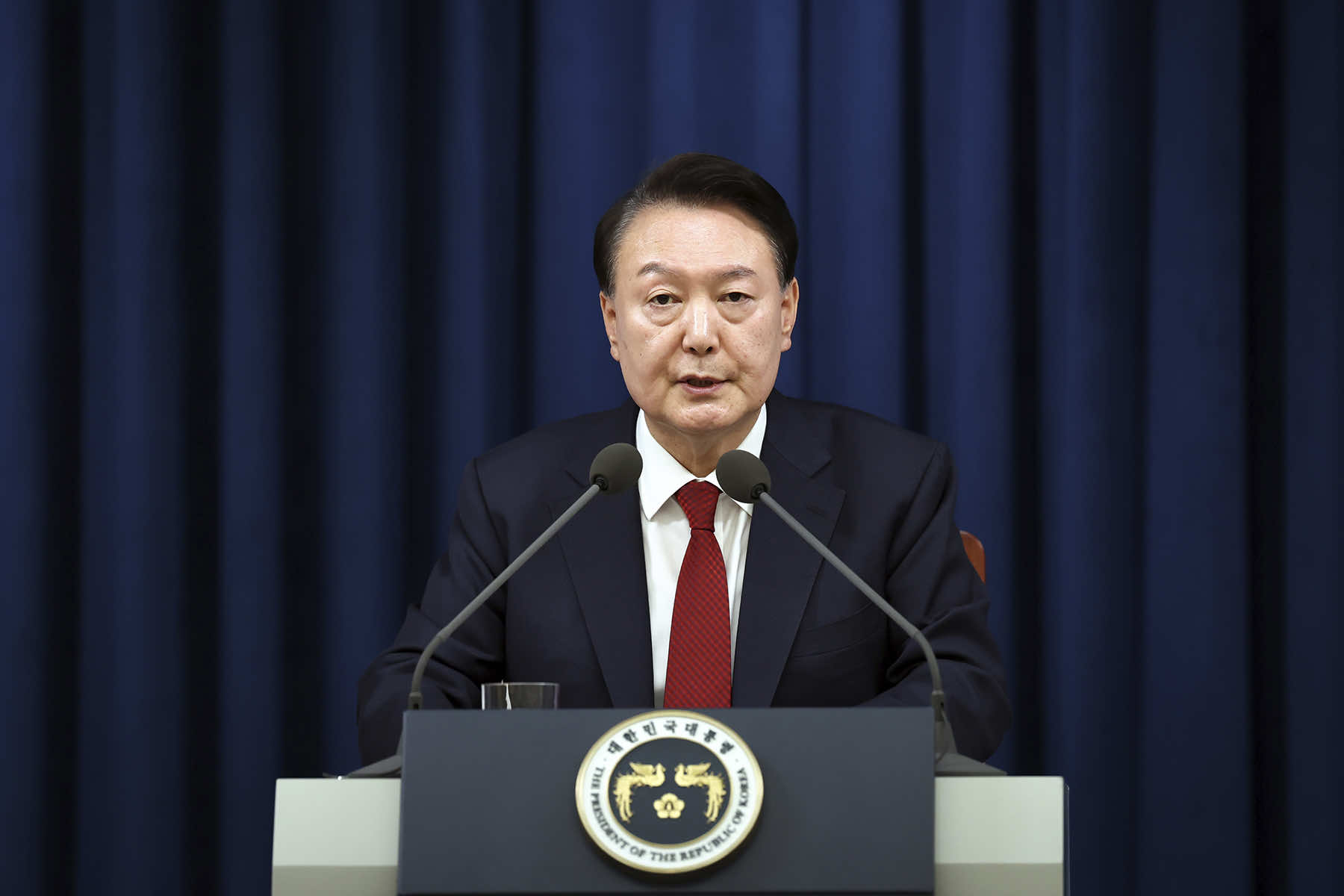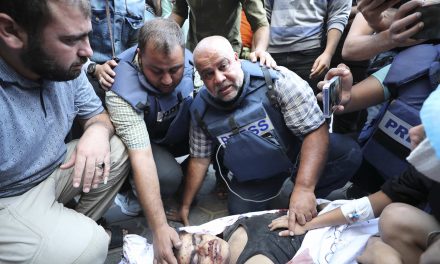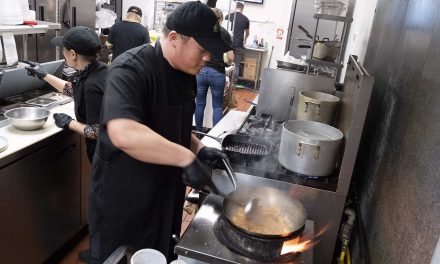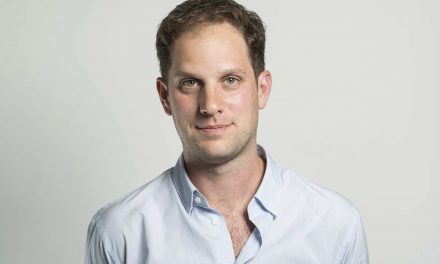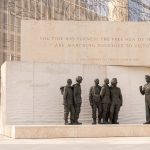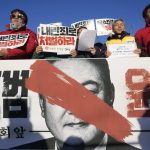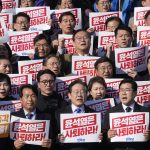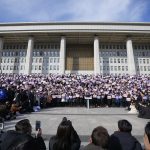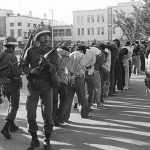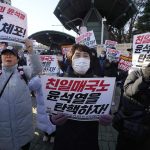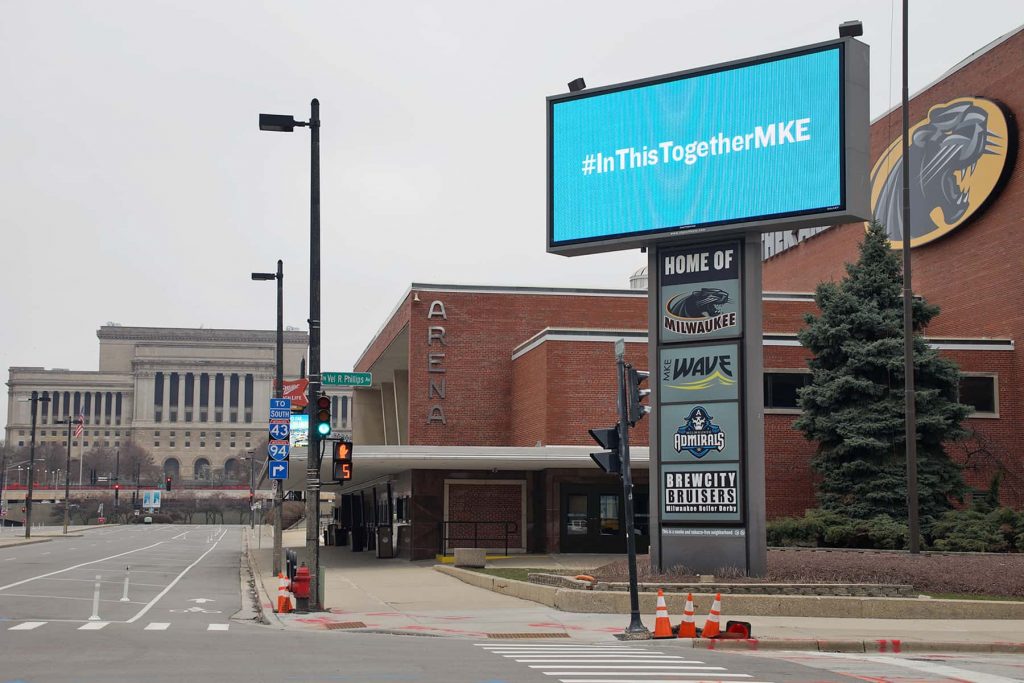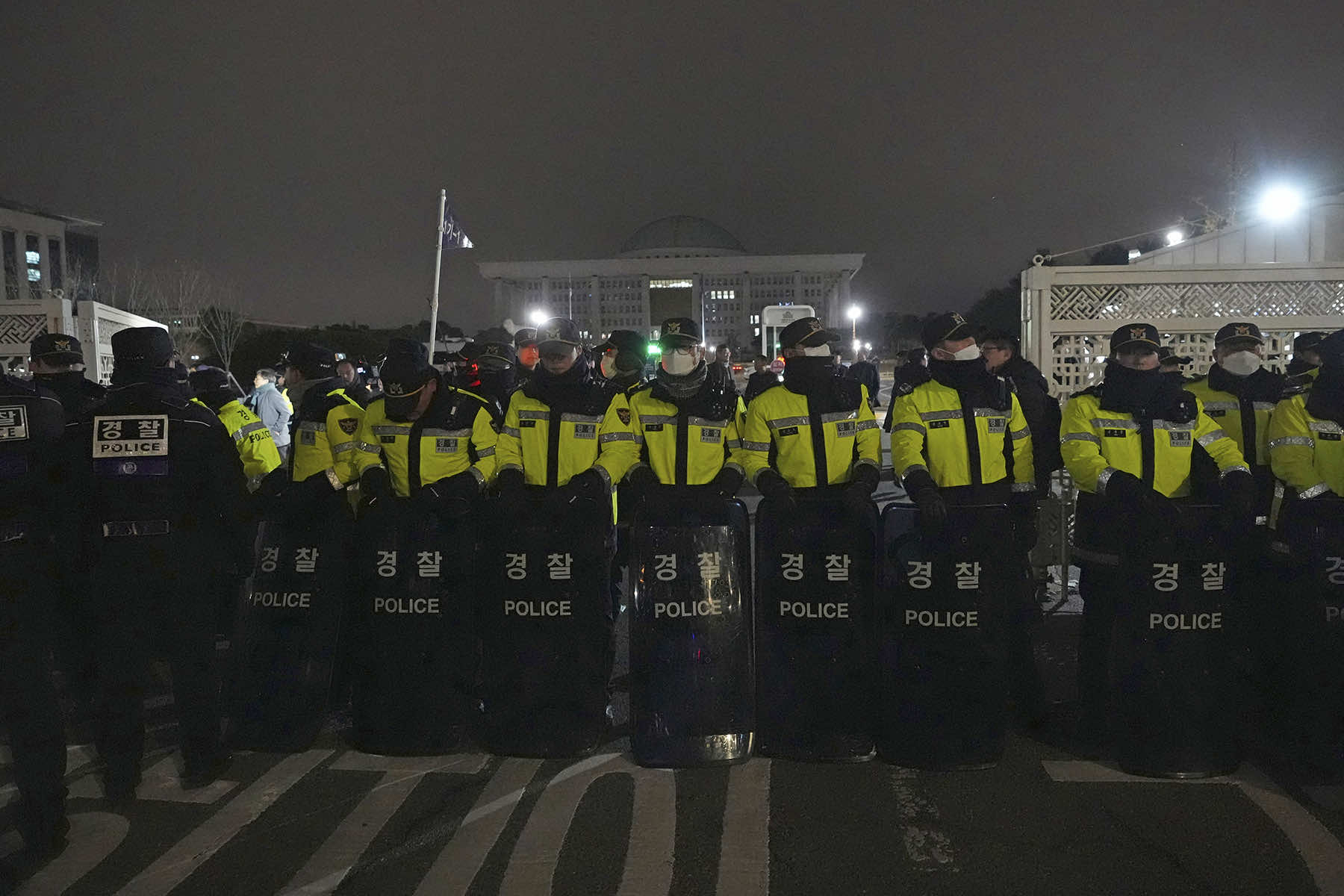
UPDATE: South Korean President Yoon Suk Yeol said early on December 4 that he would soon lift the military rule he imposed overnight, after the parliament voted to reject his martial law declaration.
Yoon said his government has withdrawn military personnel that had been deployed, and that he would formally lift martial law following a Cabinet meeting as “soon as members arrive.”
Yoon had declared martial law late Tuesday, vowing to eliminate “anti-state” forces as he struggles against an opposition that controls the country’s parliament and that he accuses of sympathizing with communist North Korea.
Less than three hours later, parliament voted to lift the declaration, with National Assembly Speaker Woo Won Shik declaring that the martial law was “invalid” and that lawmakers “will protect democracy with the people.”
South Korean President Yoon Suk Yeol declared martial law December 2, vowing to eliminate “anti-state” forces as he struggles against an opposition that controls the country’s parliament and that he accuses of sympathizing with communist North Korea.
Less than three hours later, parliament voted to lift the declaration, with National Assembly Speaker Woo Won Shik declaring that the martial law was “invalid” and that lawmakers “will protect democracy with the people.”
The president’s surprising move harkened back to an era of authoritarian leaders that the country has not seen since the 1980s, and it was immediately denounced by the opposition and the leader of Yoon’s own party.
Police and military personnel were seen leaving the Assembly’s grounds after Woo called for their withdrawal. Lee Jae-myung, leader of the liberal Democratic Party, which holds the majority in the 300-seat parliament, said the party’s lawmakers will remain in the Assembly’s main hall until Yoon formally lifts his order.
“Democratic Party lawmakers, including me and many others, will protect our country’s democracy and future and public safety, lives and properties, with our own lives,” Lee told reporters.
Jo Seung-lae, a Democratic lawmaker, claimed that security camera footage following Yoon’s declaration showed that troops moved in a way that suggested they were trying to arrest Lee, Woo and even Han Dong-hoon, the leader of Yoon’s People Power Party.
Seemingly hundreds of protesters gathered in front of the Assembly, waving banners and calling for Yoon’s impeachment.
Some protesters scuffled with troops ahead of the lawmakers’ vote, but there were no immediate reports of injuries or major property damage. At least one window was broken as troops attempted to enter the Assembly building. One woman tried unsuccessfully to pull a rifle away from one of the soldiers, while shouting “Aren’t you embarrassed!”
Under South Korea’s constitution, the president can declare martial law during “wartime, war-like situations or other comparable national emergency states” that require the use of military force to maintain peace and order. It was questionable whether South Korea is currently in such a state.
When martial law is declared, “special measures” can be employed to restrict the freedom of press, freedom of assembly and other rights, as well as the power of courts.
The constitution also states that the president must oblige when the National Assembly demands the lifting of martial law with a majority vote.
Following Yoon’s announcement, South Korea’s military proclaimed that parliament and other political gatherings that could cause “social confusion” would be suspended, South Korea’s Yonhap news agency said.
In Washington, the White House said the U.S. was “seriously concerned” by the events in Seoul. A spokesperson for the National Security Council said President Joe Biden’s administration was not notified in advance of the martial law announcement and was in contact with the South Korean government.
Speaking at an event with Japan’s ambassador to Washington, U.S. Deputy Secretary of State Kurt Campbell, a longtime Asia diplomat, reiterated that the U.S.-South Korea alliance is “ironclad” and the U.S. would “stand by Korea in their time of uncertainty.”
“I also want to just underscore that we have every hope and expectation that any political disputes will be resolved peacefully and in accordance with the rule of law,” Campbell said.
The South Korean military also said that the country’s striking doctors should return to work within 48 hours, Yonhap said. Thousands of doctors have been striking for months over government plans to expand the number of students at medical schools. The military said anyone who violates the decree could be arrested without a warrant.
Soon after the declaration, the parliament speaker called on his YouTube channel for all lawmakers to gather at the National Assembly. He urged military and law enforcement personnel to “remain calm and hold their positions.
All 190 lawmakers who participated in the vote supported the lifting of martial law. Television footage showed soldiers who had been stationed at parliament leaving the site after the vote.
Hours earlier, TV showed police officers blocking the entrance of the National Assembly and helmeted soldiers carrying rifles in front of the building.
An Associated Press photographer saw at least three helicopters, likely from the military, that landed inside the Assembly grounds, while two or three helicopters circled above the site.
The leader of Yoon’s conservative People Power Party, Han Dong-hoon, called the decision to impose martial law “wrong” and vowed to “stop it with the people.” Lee, who narrowly lost to Yoon in the 2022 presidential election, called Yoon’s announcement “illegal and unconstitutional.”
Yoon said during a televised speech that martial law would help “rebuild and protect” the country from “falling into the depths of national ruin.” He said he would “eradicate pro-North Korean forces and protect the constitutional democratic order.”
“I will eliminate anti-state forces as quickly as possible and normalize the country,” he said, while asking the people to believe in him and tolerate “some inconveniences.”
Yoon — whose approval rating has dipped in recent months — has struggled to push his agenda against an opposition-controlled parliament since taking office in 2022.
Yoon’s party has been locked in an impasse with the liberal opposition over next year’s budget bill. The opposition has also attempted to pass motions to impeach three top prosecutors, including the chief of the Seoul Central District Prosecutors’ Office, in what the conservatives have called a vendetta against their criminal investigations of Lee, who has been seen as the favorite for the next presidential election in 2027 in opinion polls.
During his televised announcement, Yoon also described the opposition as “shameless pro-North Korean anti-state forces who are plundering the freedom and happiness of our citizens,” but he did not elaborate.
Yoon has taken a hard line on North Korea over its nuclear ambitions, departing from the policies of his liberal predecessor, Moon Jae-in, who pursued inter-Korean engagement.
Yoon has also dismissed calls for independent investigations into scandals involving his wife and top officials, drawing quick, strong rebukes from his political rivals.
Yoon’s move was the first declaration of martial law since the country’s democratization in 1987. The country’s last previous martial law was in October 1979, following the assassination of former military dictator Park Chung-hee.
Natalia Slavney, research analyst at Stimson Center’s 38 North website that focuses on Korean affairs, said Yoon’s imposition of martial law was “a serious backslide of democracy in South Korea” that followed a “worrying trend of abuse” since he took office in 2022.
“It remains to be seen what the political fallout of this brief emergency martial law will be — both domestically and internationally. But South Korea has a robust history of political pluralism and is no stranger to mass protests and swift impeachments,” Slavney said, citing the example of former President Park Geun-hye.
Park, the country’s first female president, was ousted from office and imprisoned for bribery and other crimes in 2017.
- Exploring Korea: Stories from Milwaukee to the DMZ and across a divided peninsula
- A pawn of history: How the Great Power struggle to control Korea set the stage for its civil war
- Names for Korea: The evolution of English words used for its identity from Gojoseon to Daehan Minguk
- SeonJoo So Oh: Living her dream of creating a "folded paper" bridge between Milwaukee and Korean culture
- A Cultural Bridge: Why Milwaukee needs to invest in a Museum that celebrates Korean art and history
- Korean diplomat joins Milwaukee's Korean American community in celebration of 79th Liberation Day
- John T. Chisholm: Standing guard along the volatile Korean DMZ at the end of the Cold War
- Most Dangerous Game: The golf course where U.S. soldiers play surrounded by North Korean snipers
- Triumph and Tragedy: How the 1988 Seoul Olympics became a battleground for Cold War politics
- Dan Odya: The challenges of serving at the Korean Demilitarized Zone during the Vietnam War
- The Korean Demilitarized Zone: A border between peace and war that also cuts across hearts and history
- The Korean DMZ Conflict: A forgotten "Second Chapter" of America's "Forgotten War"
- Dick Cavalco: A life shaped by service but also silence for 65 years about the Korean War
- Overshadowed by conflict: Why the Korean War still struggles for recognition and remembrance
- Wisconsin's Korean War Memorial stands as a timeless tribute to a generation of "forgotten" veterans
- Glenn Dohrmann: The extraordinary journey from an orphaned farm boy to a highly decorated hero
- The fight for Hill 266: Glenn Dohrmann recalls one of the Korean War's most fierce battles
- Frozen in time: Rare photos from a side of the Korean War that most families in Milwaukee never saw
- Jessica Boling: The emotional journey from an American adoption to reclaiming her Korean identity
- A deportation story: When South Korea was forced to confront its adoption industry's history of abuse
- South Korea faces severe population decline amid growing burdens on marriage and parenthood
- Emma Daisy Gertel: Why finding comfort with the "in-between space" as a Korean adoptee is a superpower
- The Soul of Seoul: A photographic look at the dynamic streets and urban layers of a megacity
- The Creation of Hangul: A linguistic masterpiece designed by King Sejong to increase Korean literacy
- Rick Wood: Veteran Milwaukee photojournalist reflects on his rare trip to reclusive North Korea
- Dynastic Rule: Personality cult of Kim Jong Un expands as North Koreans wear his pins to show total loyalty
- South Korea formalizes nuclear deterrent strategy with U.S. as North Korea aims to boost atomic arsenal
- Tea with Jin: A rare conversation with a North Korean defector living a happier life in Seoul
- Journalism and Statecraft: Why it is complicated for foreign press to interview a North Korean defector
- Inside North Korea’s Isolation: A decade of images show rare views of life around Pyongyang
- Karyn Althoff Roelke: How Honor Flights remind Korean War veterans that they are not forgotten
- Letters from North Korea: How Milwaukee County Historical Society preserves stories from war veterans
- A Cold War Secret: Graves discovered of Russian pilots who flew MiG jets for North Korea during Korean War
- Heechang Kang: How a Korean American pastor balances tradition and integration at church
- Faith and Heritage: A Pew Research Center's perspective on Korean American Christians in Milwaukee
- Landmark legal verdict by South Korea's top court opens the door to some rights for same-sex couples
- Kenny Yoo: How the adversities of dyslexia and the war in Afghanistan fueled his success as a photojournalist
- Walking between two worlds: The complex dynamics of code-switching among Korean Americans
- A look back at Kamala Harris in South Korea as U.S. looks ahead to more provocations by North Korea
- Jason S. Yi: Feeling at peace with the duality of being both an American and a Korean in Milwaukee
- The Zainichi experience: Second season of “Pachinko” examines the hardships of ethnic Koreans in Japan
- Shadows of History: South Korea's lingering struggle for justice over "Comfort Women"
- Christopher Michael Doll: An unexpected life in South Korea and its cross-cultural intersections
- Korea in 1895: How UW-Milwaukee's AGSL protects the historic treasures of Kim Jeong-ho and George C. Foulk
- "Ink. Brush. Paper." Exhibit: Korean Sumukhwa art highlights women’s empowerment in Milwaukee
- Christopher Wing: The cultural bonds between Milwaukee and Changwon built by brewing beer
- Halloween Crowd Crush: A solemn remembrance of the Itaewon tragedy after two years of mourning
- Forgotten Victims: How panic and paranoia led to a massacre of refugees at the No Gun Ri Bridge
- Kyoung Ae Cho: How embracing Korean heritage and uniting cultures started with her own name
- Complexities of Identity: When being from North Korea does not mean being North Korean
- A fragile peace: Tensions simmer at DMZ as North Korean soldiers cross into the South multiple times
- Byung-Il Choi: A lifelong dedication to medicine began with the kindness of U.S. soldiers to a child of war
- Restoring Harmony: South Korea's long search to reclaim its identity from Japanese occupation
- Sado gold mine gains UNESCO status after Tokyo pledges to exhibit WWII trauma of Korean laborers
- The Heartbeat of K-Pop: How Tina Melk's passion for Korean music inspired a utopia for others to share
- K-pop Revolution: The Korean cultural phenomenon that captivated a growing audience in Milwaukee
- Artifacts from BTS and LE SSERAFIM featured at Grammy Museum exhibit put K-pop fashion in the spotlight
- Hyunjoo Han: The unconventional path from a Korean village to Milwaukee’s multicultural landscape
- The Battle of Restraint: How nuclear weapons almost redefined warfare on the Korean peninsula
- Rejection of peace: Why North Korea's increasing hostility to the South was inevitable
- WonWoo Chung: Navigating life, faith, and identity between cultures in Milwaukee and Seoul
- Korean Landmarks: A visual tour of heritage sites from the Silla and Joseon Dynasties
- South Korea’s Digital Nomad Visa offers a global gateway for Milwaukee’s young professionals
- Forgotten Gando: Why the autonomous Korean territory within China remains a footnote in history
- A game of maps: How China prepared to steal Korean history to prevent reunification
- From Taiwan to Korea: When Mao Zedong shifted China’s priority amid Soviet and American pressures
- Hoyoon Min: Putting his future on hold in Milwaukee to serve in his homeland's military
- A long journey home: Robert P. Raess laid to rest in Wisconsin after being MIA in Korean War for 70 years
- Existential threats: A cost of living in Seoul comes with being in range of North Korea's artillery
- Jinseon Kim: A Seoulite's creative adventure recording the city’s legacy and allure through art
- A subway journey: Exploring Euljiro in illustrations and by foot on Line 2 with artist Jinseon Kim
- Seoul Searching: Revisiting the first film to explore the experiences of Korean adoptees and diaspora

